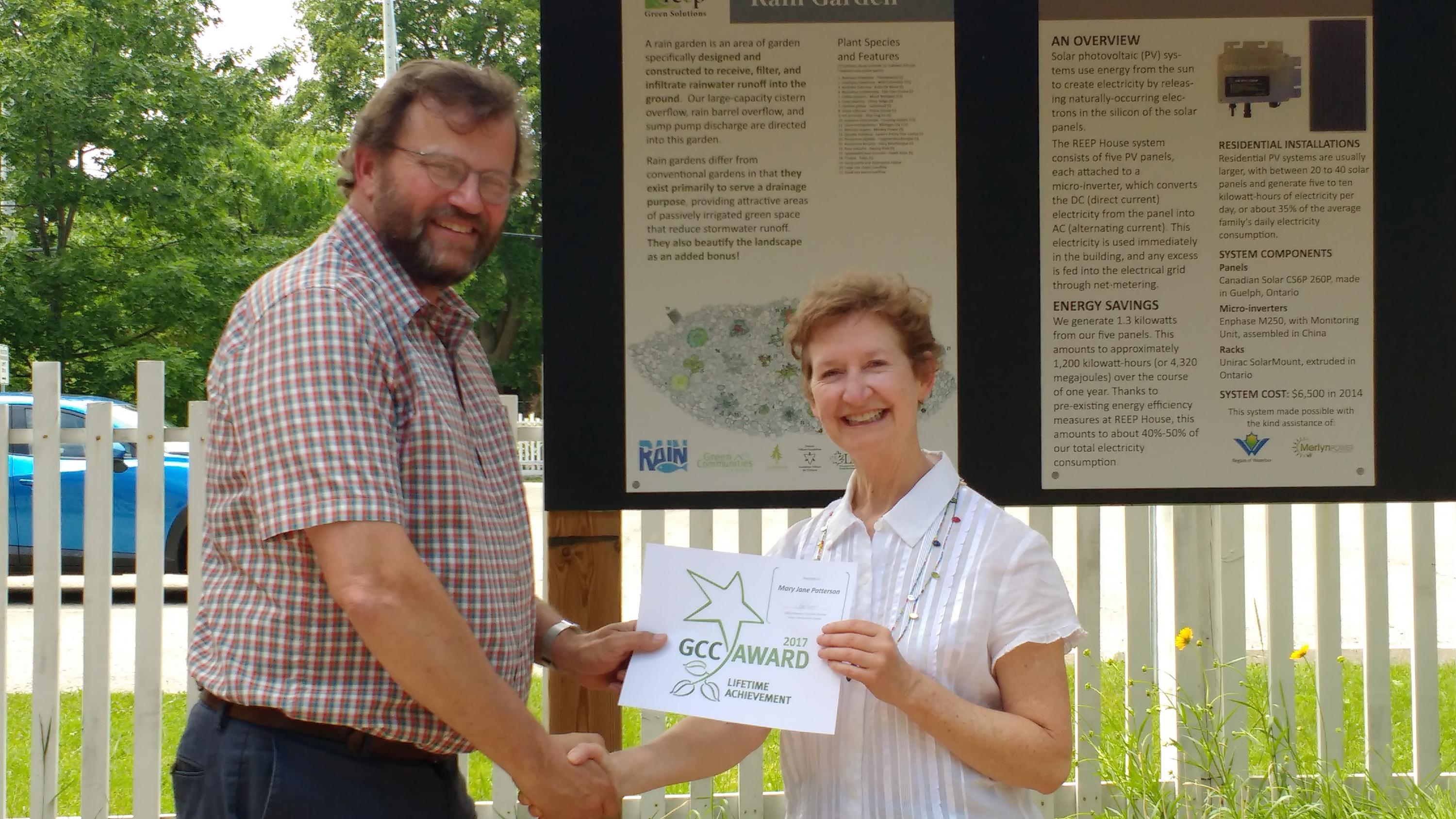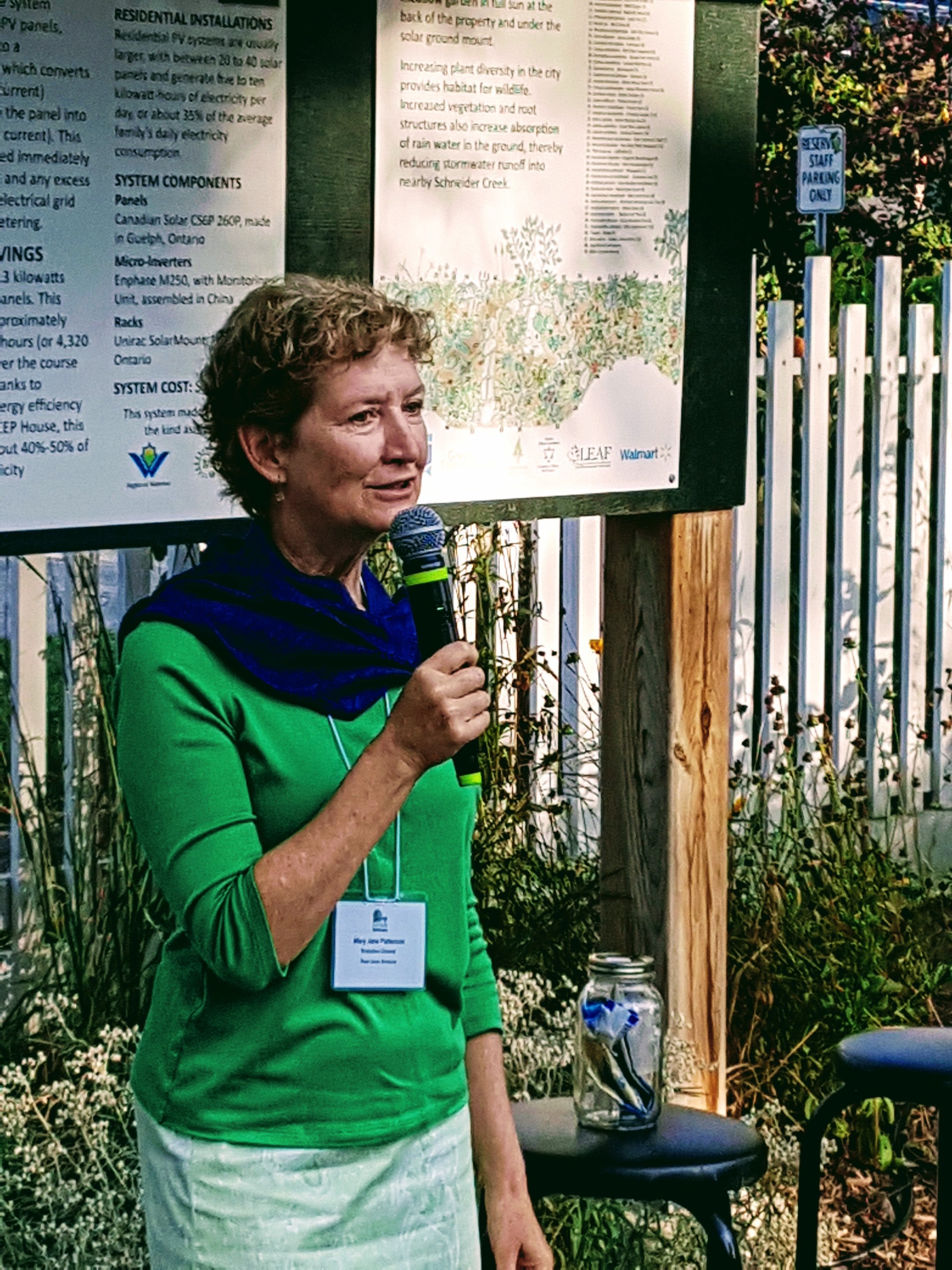
Written by Mary Jane Patterson (MES '01)
I remember the exact moment I decided to leave the television industry, take the summer off, and go back to school to learn about the environment. It was 1998, and I’d been mulling it over for months, taking courses by correspondence or after work as an introduction to environmental studies. I was ready to stop working on films about other people doing things, and start doing things myself. A total change of career.
The big decision was which university to go to, and when I visited UWaterloo, the answer was clear. It stood out from the others in two ways that caught my attention: it had women in the faculty – impressive women, when I met them - and the emphasis was on social justice rather than “management” of the environment, something that made total sense to me.
The summer before I started the masters program, I interviewed for a job at the Environment faculty to help start a new project called the Residential Energy Efficiency Project (R.E.E.P.). The four co-founders were stepping outside their comfort zone to match academic research with practical action in the community, by offering home energy evaluations and studying the results. It sounded like a neat idea. Ian Rowlands (UW), Paul Parker (UW), Dan Scott (UW) and Don Eaton (Elora Environment Centre) became my trainers in this new career.
Working with my co-hiree, Ryan Kennedy (UW), who matched practical action with complete and total wackiness, we got started. We had an office in the basement of the Environmental Studies building with no desk, chair or phone, and we were to start booking home energy evaluations immediately, ten a week. We punched a hole in the wall to pull a telephone cord through, and started scrounging supplies. Soon people were ducking when they saw us coming down the hallway.
I left R.E.E.P. behind and started my Masters that fall of 1999, learning tons from my co-supervisors Mary-Louise Kattides and Ian Rowlands. My research focus was the sustainability of green electricity in Canada and the U.S.—a great primer in the complexities of what is sustainable and the different ways to generate electricity. The coursework also looked at human behavior and political will—the things that stand in our way that are not technical. I remember Professor Bob Gibson talking about the rebound effect – feeling so good about the energy conservation you’ve done that you buy a new TV or leave the lights on, negating the savings. Jeepers, what a party pooper. And what a lesson in human behavior.

Meanwhile Ryan and R.E.E.P. carried on, using community-based social marketing to engage 1,000 residents in home energy evaluations per year. The project was a big success, and needed a manager for the next phase as Ryan went off to the next stage of his brilliant career (he is now at the Institute for Global Tobacco Control at Johns Hopkins in Baltimore). I was ready for my first job in this new career. I took the baton from Ryan.
Fifteen thousand homes later, we’re now known as Reep Green Solutions. We continue to be a unique combination of practical action and academic research, with a much broader focus now on helping people live sustainably. Building on those energy efficiency beginnings, we’ve added water conservation, stormwater management, waste reduction and climate change action to our roster of programs and services. It all comes together in the beautiful Reep House for Sustainable Living, our 100-year-old LEED Platinum-certified renovated demonstration and education centre in Kitchener.
We have long since moved off campus, but remain closely connected to UWaterloo through directors on our Board, co-op and summer students, volunteers getting academic credit for Paul Parker’s class, and through many student research projects that study the impacts of our work. It is a special relationship.
When I went back to school, I had no idea how much my choice of university would impact my future career. I am forever grateful for the professors of the Environment faculty, who always kept that focus on social justice in sight. They changed my life.